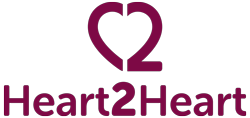Mature News - Simple home test can halve the risk of stroke and cut the risk of death for thousands of patients on warfarin therapy
MPs, clinicians and patients are uniting to drive change for patients on long-term warfarin
 A simple self-monitoring test could reduce the risk of stroke by half in thousands of people who currently take warfarin to prevent blood clots. Better access to self-monitoring of international normalized ratio (INR) levels, which measures how long it takes blood to form a clot, could also lower mortality rates by nearly two fifths, reduce the number of complications and has the potential to save the NHS around £62 million a year, a group of MPs, patients and charities stated this week.
A simple self-monitoring test could reduce the risk of stroke by half in thousands of people who currently take warfarin to prevent blood clots. Better access to self-monitoring of international normalized ratio (INR) levels, which measures how long it takes blood to form a clot, could also lower mortality rates by nearly two fifths, reduce the number of complications and has the potential to save the NHS around £62 million a year, a group of MPs, patients and charities stated this week.
Speaking in Parliament, Virendra Sharma, MP and member of the Health Select Committee, said that many patients who take the anticoagulant warfarin were not benefitting from self-monitoring through either a lack of awareness or issues around access. He stated that “There are more than 1.2 million people in the UK on warfarin but fewer than two per cent of them benefit from self-monitoring,”.
He went on to say: “If more patients are able to choose to self-monitor, it would improve the quality of their care and create savings for the NHS. We need to see more opportunities for people to discuss the option of self-monitoring with their GP. So today we are encouraging patients and their families to write to their local MPs asking for self-monitoring technology to be made available on NHS prescription and to register their support for the ACSMA campaign at www.acsma.org.uk. ”
Warfarin is used to reduce the risk of blood clots in conditions such as atrial fibrillation,deep vein thrombosis, pulmonary embolism and in people with mechanical heart valves.
This week at the House of Commons, the AntiCoagulation Self-Monitoring Alliance (ASCMA) launched a new campaign to increase patient access via prescription to self-monitoring technology for those on long term warfarin treatment. ASCMA comprises four of the UK’s leading charities and patient groups – AntiCoagulation Europe (ACE); the Children’s Heart Federation; the Atrial Fibrillation Association (AF Association); the Mechanical Heart Valve Support Group. Healthcare company Roche is also part of the alliance.
Current estimates show that oral anticoagulation therapy (OAT) management of stable patients costs the NHS around £409 million. Studies also show that if only one in four patients took up self-monitoring, this would save the NHS approximately £62 million per year.
Patient benefits
Self-monitoring is convenient for those on long-term warfarin, reducing clinic visits and freeing up precious time. It is also associated with more accurate warfarin dosing and can bring about a significant reduction in adverse events and death. Furthermore, self-monitoring has been shown to reduce the risk of stroke by over 50 per cent and reduce mortality rates by nearly two fifths. Through self-monitoring, results can be produced in less than a minute and readings can then be shared with the healthcare professional, and if needed, adjustments to warfarin dosage made.
Virendra Sharma also commented on the fact that there was a growing body of evidence that patient self-monitoring improves the quality of warfarin therapy, and patients who self-manage have fewer thromboembolic events and lower mortality rates.
Katherine, who is 18 years old, was born with a heart condition called Pulmonary Atresia. She had to have major life-threatening open heart surgery when she was 7 years old and has been battling her condition ever since. Rachel, Katherine’s mum said, “Taking her for the blood tests over the years has been pretty harrowing, there is no reasoning with a terrified, crying child who is begging you not to have it done. Having it done at home is so much easier; we’re so lucky to now have a machine. It’s safe, easy and practical – it revolutionises your whole life.”
Awareness of the benefits of self-monitoring is not great. A survey of patients on long-term warfarin, sponsored by two of the UK’s leading patient charities: ACE and AF Association, in conjunction with healthcare company Roche, revealed a lack of awareness about self-monitoring:
- Over 50 per cent not using monitors did not know they existed, despite the medical and quality of life benefits for patients
- More than 90 per cent wanted to be more involved and consulted in care decisions – but the majority of people were not aware of the current NHS actions to involve patients in care decisions
- 70 per cent found regular clinic visits inconvenient.
Eve Knight, Chief Executive and Co-founder of AntiCoagulation Europe said: “The goal of the Alliance is for patients to have sufficient information to enable them to have a greater choice in the management of their anticoagulation therapy. We believe that patients should be able to choose whether to self-monitor. This change could lead to improved health outcomes, ultimately saving money for both patients and the NHS.”
Graeme Archer, founder of the UK online Mechanical Heart Valve Support Group said: “It’s estimated that every year over 6,000 mechanical heart valves are fitted to patients in the UK with more than 1.5 million implanted worldwide. With their proven durability to last throughout a patient’s life they are chosen by both younger and older people alike. However, because of the composition of mechanical heart valves, patients require life-long anticoagulation therapy. Through self-monitoring ‘any time/anywhere’ rather than the current NHS hospital/clinic system, patients are free to enjoy a far superior quality of life by not being tied to a lifelong external monitoring system, ultimately working out cheaper in the long term for the NHS and patient alike.”









